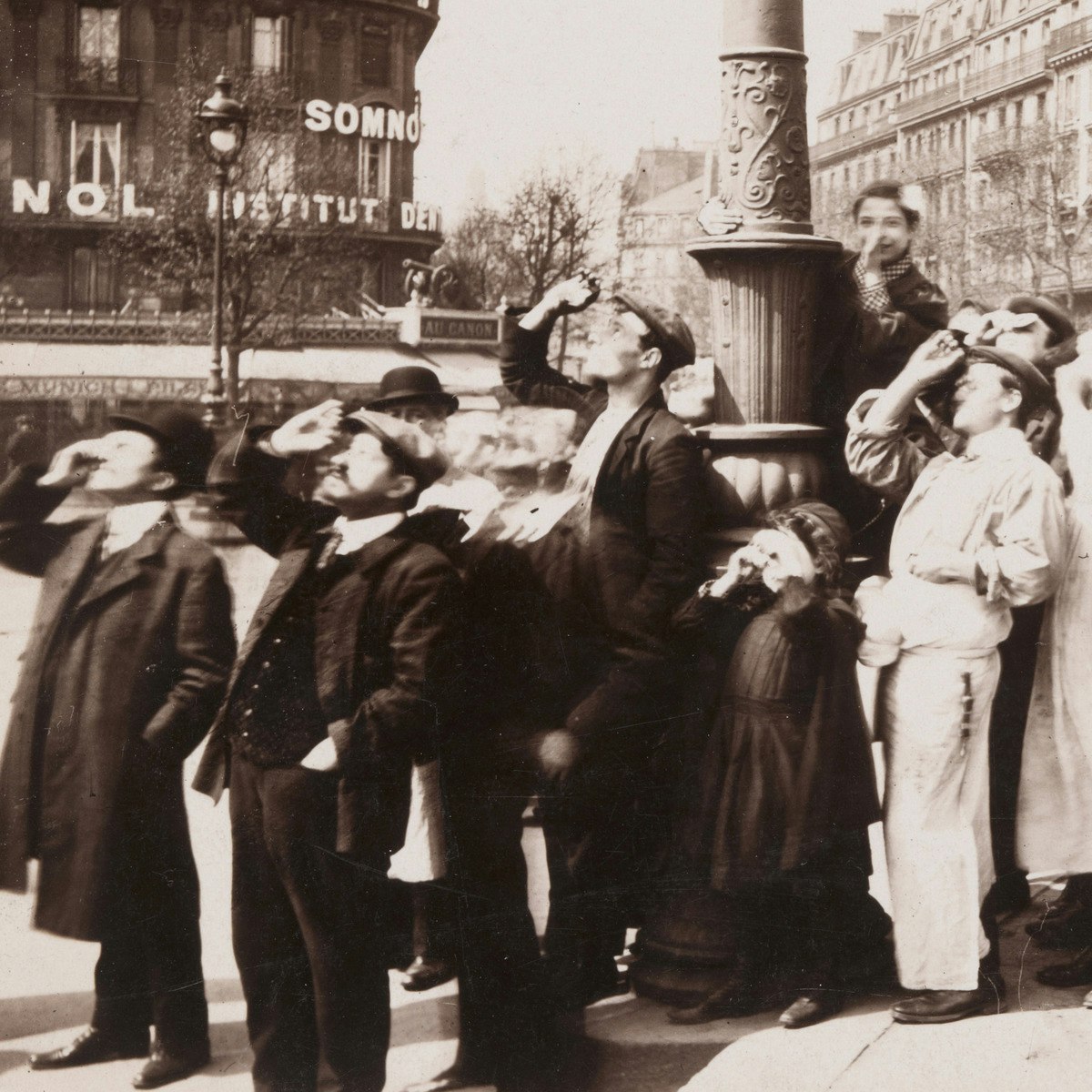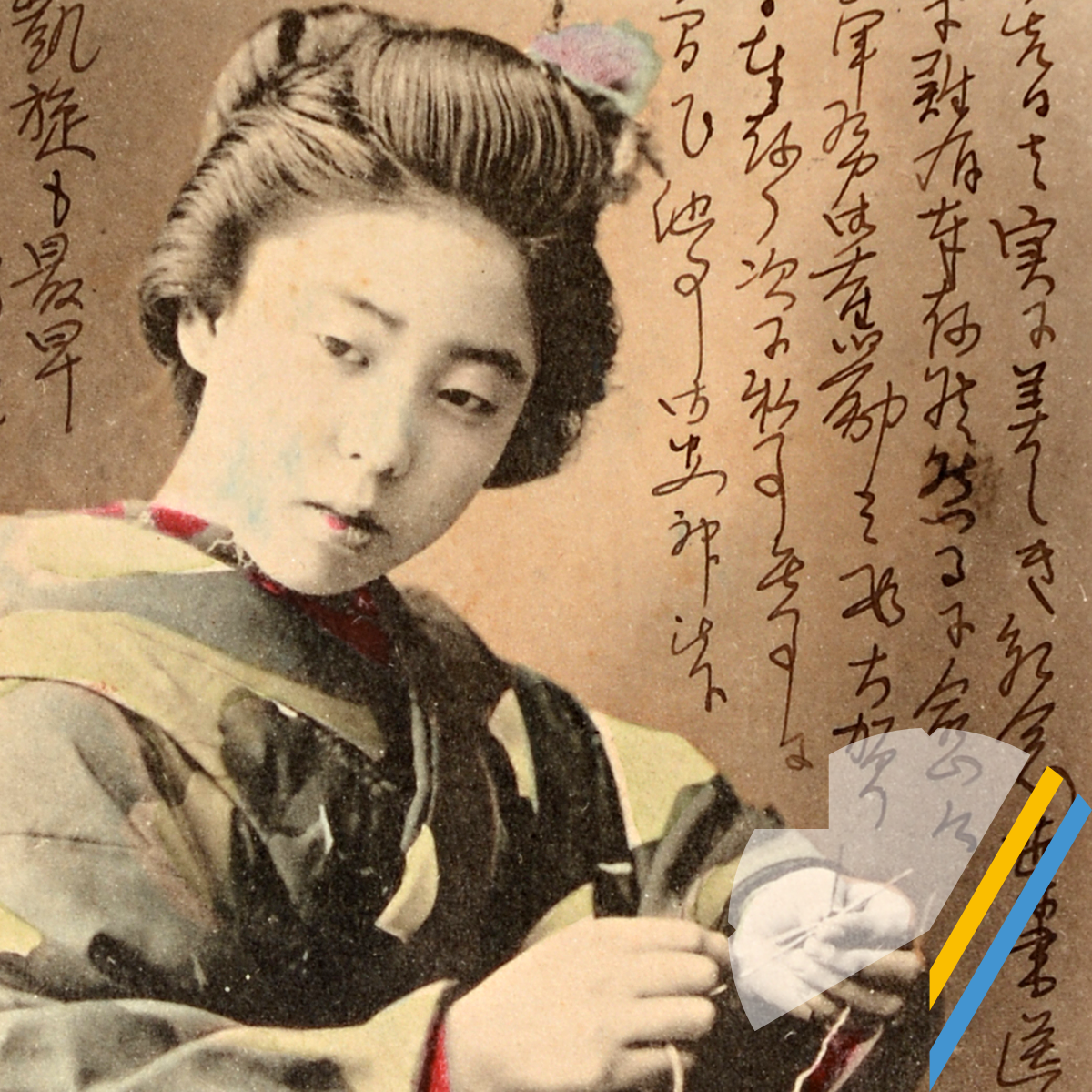Photographer
A Career in Focus: Exploring the World of Professional Photography
Photography is the art, application, and practice of creating durable images by recording light, either electronically by means of an image sensor, or chemically by means of a light-sensitive material such as photographic film. At its core, it's about capturing moments, telling stories, and communicating ideas through visual media. Professional photographers use their technical skills, artistic vision, and understanding of light and composition to create compelling images for a wide range of purposes, from commercial advertising to fine art.
Embarking on a career as a photographer can be an exciting prospect, offering opportunities for creative expression, travel, and meeting diverse people. Whether capturing the emotion of a wedding day, the drama of a wildlife scene, or the aesthetic appeal of a product, photographers play a vital role in how we see and understand the world. The field blends technical mastery with artistic sensibility, demanding both proficiency with equipment and a unique creative eye.
Understanding the Scope of Professional Photography
What Does a Professional Photographer Do?
A professional photographer is someone who earns their living by taking photographs. This involves more than just clicking a shutter; it encompasses planning shoots, setting up lighting and equipment, directing subjects, editing images using software, managing digital assets, marketing services, and handling business administration. Their work appears in various media, including websites, advertisements, magazines, books, and galleries.
The scope is broad, covering numerous specializations. Some photographers focus on portraiture, capturing individuals or groups in studios or on location. Others might specialize in commercial photography, creating images for businesses and advertising. Photojournalists document events and news stories, while fine art photographers create images primarily for aesthetic and expressive purposes, often exhibited in galleries.
The daily tasks can vary greatly depending on specialization and employment status (freelance vs. employed). A freelance wedding photographer might spend weekends shooting events and weekdays editing photos and meeting clients. A commercial photographer employed by a studio could work on diverse projects, from product shots to corporate headshots, often collaborating with art directors and marketing teams.
Hobbyist vs. Professional: Key Distinctions
While millions enjoy photography as a hobby, transitioning to professional work involves significant differences. Hobbyists primarily shoot for personal enjoyment, creative expression, or documenting personal life, often without the pressure of client expectations or deadlines. Their investment in gear and time is typically driven by personal interest and budget.
Professionals, conversely, operate under business constraints. They must consistently deliver high-quality images that meet client specifications, often under tight deadlines and pressure. This requires not only advanced technical and artistic skills but also strong business acumen, including marketing, client management, negotiation, and financial planning. Professional work demands reliability, consistency, and the ability to produce excellent results even when personal inspiration is low.
Furthermore, professionals usually invest heavily in high-end equipment, backup gear, software, insurance, and ongoing education to stay competitive. The focus shifts from purely personal satisfaction to meeting market demands and building a sustainable business or career, which can fundamentally change one's relationship with the craft.
Common Misconceptions
Several misconceptions surround a photography career. One common belief is that owning an expensive camera automatically makes one a good photographer capable of professional work. In reality, skill, knowledge of lighting, composition, and editing are far more crucial than gear alone. Many professionals start with modest equipment and upgrade as their skills and business grow.
Another misconception is that photography is a glamorous and easy career, filled primarily with travel and creativity. While it can offer unique experiences, the reality often involves long hours, demanding clients, extensive editing time, business administration, and the constant need to find new work, especially for freelancers. Financial instability, particularly early in one's career, can also be a significant challenge.
Finally, some assume digital technology and smartphones have made professional photography obsolete. While the market has changed, the demand for high-quality, professional imagery created with expertise and artistic vision persists across many sectors, from advertising to events and specialized fields like scientific or aerial photography.
A Brief History of Photography as a Profession
Photography emerged in the early 19th century, initially as a scientific curiosity and artistic experiment. Early photographers like Louis Daguerre and William Henry Fox Talbot laid the groundwork. By the mid-1800s, portrait studios became common, offering a novel way to capture likenesses, previously only accessible to the wealthy through painting.
The late 19th and early 20th centuries saw photography expand into documentation, photojournalism, and advertising, driven by technological advances like more portable cameras and faster films. Figures like Mathew Brady (Civil War documentation) and later, Dorothea Lange (Depression-era photos) showed the power of photography in shaping public perception.
The rise of magazines like Life created significant demand for photojournalists. The post-war era saw fashion and advertising photography flourish. Digital photography, beginning in the late 20th century and exploding in the 21st, revolutionized the field, changing workflows, accessibility, and the very definition of a photograph, leading to the diverse professional landscape we see today.
For those interested in the historical and theoretical underpinnings of the medium, these books offer profound insights.
Types of Professional Photography
Commercial vs. Artistic Photography
Professional photography can be broadly categorized into commercial and artistic paths, though overlap exists. Commercial photography is primarily commissioned work intended to sell, advertise, or promote a product, service, person, or brand. Success is often measured by the client's objectives being met and the image's effectiveness in the marketplace.
Examples include advertising, product photography, fashion, corporate headshots, real estate photography, and event coverage for businesses. These photographers often work closely with clients, art directors, and marketing teams to achieve a specific visual goal. Technical precision, reliability, and understanding market trends are key.
Artistic photography, or fine art photography, is driven more by the photographer's personal vision and expression. The images are created primarily as artwork, intended for exhibition in galleries, museums, or for sale to collectors. Success is often defined by critical acclaim, artistic impact, and the ability to convey a unique perspective or emotion. While it can be commercially viable, the primary motivation is typically self-expression rather than fulfilling a client's brief.
Exploring Specializations
Within commercial and artistic photography, numerous specializations cater to different interests and skills. Portrait photographers capture the likeness and personality of individuals or groups, working in studios or on location. This can range from family portraits and senior pictures to executive headshots and editorial portraits for magazines.
Wildlife photographers capture animals in their natural habitats, requiring patience, knowledge of animal behavior, and often rugged fieldwork. Landscape photographers focus on capturing natural scenery, cityscapes, or environmental features, often emphasizing light and atmosphere.
Photojournalists document news, events, and social issues for publications or agencies, adhering to ethical standards of accuracy and objectivity. Event photographers cover weddings, concerts, corporate events, and parties. Other specializations include architectural, food, sports, fashion, scientific, forensic, and underwater photography, each demanding specific techniques and equipment.
Emerging Niches and Technologies
Technology continuously shapes photography, creating new niches. Drone photography offers unique aerial perspectives for real estate, landscape, events, and filmmaking. Understanding regulations and piloting skills are essential.
AI-assisted photography and editing tools are changing workflows, automating tasks like culling, retouching, and even generating imagery. While controversial, understanding AI's capabilities and limitations is becoming increasingly important. Virtual Reality (VR) photography creates immersive 360-degree experiences for tourism, real estate, and entertainment.
Smartphone photography has also evolved, with advanced cameras and editing apps enabling professional-quality work in certain contexts, particularly for social media content and photojournalism where immediacy is key. This accessibility broadens the field but also increases competition.
Industry Demand Across Specializations
Demand for photographers varies significantly by specialization, location, and economic conditions. Commercial photography often sees consistent demand, driven by advertising, marketing, and e-commerce needs. Product photography, in particular, has grown with the rise of online retail.
Portrait photography, including weddings and family portraits, remains popular but is highly competitive and sensitive to economic downturns. Photojournalism has faced challenges due to media industry shifts, with staff positions declining and freelance work becoming more common, often requiring multimedia skills.
Fine art photography operates in a niche market, often requiring significant time investment in building reputation and gallery relationships. Emerging fields like drone photography show growth potential, while areas heavily impacted by stock imagery or AI might see shifts in demand for certain types of work. Researching specific market trends in your desired specialization and region is crucial.
Educational Pathways for Aspiring Photographers
High School Preparation
For students interested in photography, high school offers foundational opportunities. Art classes covering drawing, composition, and color theory provide a strong visual base. If available, photography courses introduce basic camera functions, darkroom techniques (if applicable), and digital editing fundamentals.
Building a portfolio early is beneficial. Documenting school events, taking portraits of friends, or pursuing personal projects helps develop skills and provides material for college applications or early client work. Joining a photography club or seeking mentorship from local photographers can also provide valuable experience and guidance.
Undergraduate Degrees and Certifications
Formal education options include Bachelor of Fine Arts (BFA) degrees, Associate degrees, or technical certifications. BFA programs, typically four years, offer comprehensive education in art history, theory, critique, and hands-on photographic techniques, often exploring both digital and traditional processes. They encourage conceptual development and building a strong artistic voice.
Associate degrees or certificate programs, often found at community colleges or technical schools, tend to be shorter and more focused on practical, vocational skills. They emphasize technical proficiency with cameras, lighting, and software, preparing students for specific roles like studio assistant or commercial photographer. These can be a faster route into the industry.
Online courses offer flexible and accessible ways to learn specific skills or supplement formal education. Platforms like OpenCourser aggregate thousands of courses covering everything from basic camera operation to advanced lighting and business practices. This allows learners to tailor their education to specific interests or career goals, often at a lower cost than traditional degrees.
These courses provide a solid foundation in understanding camera basics and exposure, essential first steps for any aspiring photographer.
Graduate Studies and Research
For those seeking advanced study, teaching positions at the university level, or deep exploration of photography as an art form, a Master of Fine Arts (MFA) may be suitable. MFA programs are typically two to three years and involve intensive studio work, critical theory, art history, and culminate in a thesis exhibition.
These programs foster critical thinking, refine artistic vision, and build professional networks within the art world. Research opportunities might involve historical photographic processes, contemporary theory, or interdisciplinary projects connecting photography with other fields. An MFA is often a prerequisite for tenure-track teaching positions in higher education.
Some may pursue PhDs related to photography history, theory, or visual culture, although these are less common pathways for practicing photographers and are more geared towards academic research and scholarship.
Continuing Education and Self-Taught Routes
Photography is a field where continuous learning is vital due to evolving technology and trends. Many successful photographers are largely self-taught, learning through practice, workshops, online tutorials, books, and mentorship. While formal education provides structure and credentials, dedication and a strong portfolio often matter more to clients.
Established professionals frequently engage in continuing education through workshops, conferences, and online courses to master new software, techniques (like advanced lighting or retouching), or business strategies. Platforms like OpenCourser are invaluable resources for lifelong learning, allowing photographers to upskill conveniently.
Whether formally educated or self-taught, building a strong portfolio showcasing technical skill and a unique style is paramount. Networking, internships, and assistantships provide practical experience and industry connections, regardless of educational background. The path to becoming a professional photographer is diverse; success depends more on talent, persistence, and business sense than on a specific degree.
These comprehensive courses cover a wide range of essential photography skills, suitable for both beginners building a foundation and professionals looking to refine their craft.
These books offer excellent practical guidance for photographers at various stages.
Essential Technical Skills for Modern Photographers
Mastering Camera Operation and Lighting
Fundamental to photography is understanding how cameras work. This includes mastering the exposure triangle – aperture, shutter speed, and ISO – and their interplay in controlling light and achieving desired effects like depth of field or motion blur. Proficiency with camera modes (manual, aperture priority, etc.), focusing systems, metering, and white balance is essential.
Equally critical is the ability to shape and control light, whether natural or artificial. This involves understanding light quality (hard vs. soft), direction, and color temperature. Photographers must know how to use reflectors, diffusers, strobes, continuous lights, and various modifiers to achieve their desired mood and style, whether in a studio or on location.
These courses focus specifically on understanding and operating different camera systems, a vital skill for any photographer.
Navigating the Digital Workflow
Modern photography heavily relies on a digital workflow. This starts with capturing images, often in RAW format to retain maximum data for editing. Efficiently transferring images from camera to computer, organizing, backing up, and managing large volumes of files using digital asset management (DAM) software or strategies is crucial.
The workflow continues with image selection (culling) and processing RAW files using software like Adobe Lightroom or Capture One. This involves adjustments to exposure, contrast, color balance, sharpening, and noise reduction. Finally, images are prepared for their intended output, whether for print (requiring knowledge of color spaces like Adobe RGB and CMYK) or web (sRGB, appropriate sizing and compression).
Software Proficiency
Proficiency in editing software is non-negotiable. The Adobe Creative Suite, particularly Photoshop and Lightroom, remains the industry standard for RAW processing, detailed retouching, compositing, and image manipulation. Mastering layers, masks, adjustment layers, selection tools, and retouching techniques in Photoshop is often expected.
Alternatives like Capture One are popular, especially among studio and commercial photographers, for their tethering capabilities and RAW processing quality. Open-source options like GIMP and Darktable offer powerful tools for those on a budget, though they may have steeper learning curves or different workflows.
These courses provide in-depth training on industry-standard editing software.
Equipment Knowledge and Maintenance
Photographers need a solid understanding of their equipment. This includes choosing the right camera body (DSLR or mirrorless, full-frame or crop sensor), lenses (primes vs. zooms, focal lengths, apertures), lighting gear, tripods, and accessories for their specific needs and budget. Understanding lens characteristics like distortion, sharpness, and bokeh is important.
Regular maintenance is also key to ensure gear longevity and reliability. This involves cleaning sensors and lenses, updating firmware, properly storing equipment, and knowing basic troubleshooting. Making informed decisions about renting versus buying gear, especially expensive or specialized items, is part of managing resources effectively.
Career Progression in Photography
Entry-Level Roles and Starting Out
Many photographers begin their careers as assistants to established professionals. Assistant roles provide invaluable hands-on experience with lighting, equipment, client interaction, and the business side of photography, often in demanding, real-world scenarios. This path offers mentorship and industry connections.
Others start directly as freelancers, often building a portfolio through personal projects, speculative work, or shooting for friends, family, or small local clients. This requires strong self-discipline, marketing skills, and the ability to manage all aspects of the business from day one. Early freelance work might involve smaller events, basic portraits, or content for local businesses.
Entry-level positions might also exist in related fields, such as photo lab technician, studio manager assistant, or digital technician on larger commercial shoots. Building a strong online presence and portfolio is crucial regardless of the starting path.
Mid-Career: Specialization vs. Generalization
As photographers gain experience, they often face a choice between specializing in a specific niche or maintaining a broader, more generalized practice. Specialization allows photographers to develop deep expertise, build a reputation within a particular market (e.g., high-end wedding photography, automotive advertising), potentially command higher rates, and target marketing efforts more effectively.
However, specialization can also make a photographer more vulnerable to market shifts within that niche. Generalization, offering a wider range of services (e.g., portraits, events, small commercial jobs), can provide more diverse income streams and adaptability. The downside might be spreading oneself too thin and facing broader competition.
Mid-career development often involves refining one's artistic style, improving business practices, investing in better equipment, expanding client networks, and possibly hiring assistants or staff. Continuous learning and adapting to industry changes remain important.
Leadership Roles and Advancement
With significant experience and reputation, photographers may advance to leadership positions. This could involve running their own successful studio with multiple employees, managing photographic departments within larger companies or organizations, or becoming an Art Director overseeing visual campaigns.
Some highly successful photographers achieve widespread recognition, exhibiting internationally, publishing books, or landing high-profile commercial contracts. Creative direction roles involve guiding the overall visual strategy for projects or brands, often managing teams of photographers, stylists, and designers.
Leadership requires strong communication, management, and strategic thinking skills, in addition to photographic expertise. Building a strong personal brand and industry influence becomes increasingly important at this stage.
Alternative Paths and Pivots
Not all photography careers follow a linear path. Experienced photographers might pivot into related roles. Teaching photography at high schools, colleges, universities, or workshops is a common alternative, sharing knowledge and inspiring the next generation. This often requires additional credentials like an MFA for higher education.
Other paths include becoming a Photo Editor for publications or agencies, curating exhibitions for galleries or museums, working as a photo researcher, or specializing in technical roles like high-end retouching, digital asset management, or photographic equipment sales and support.
Some photographers leverage their visual skills in broader creative fields like graphic design, filmmaking, or web design. The skills developed as a photographer – composition, visual storytelling, technical proficiency, client management – are transferable to many other careers.
Financial Realities of Photography Careers
Income Ranges and Influencing Factors
Income for photographers varies dramatically based on specialization, experience, location, employment status (freelance vs. staff), and business acumen. According to the U.S. Bureau of Labor Statistics, the median annual wage for photographers was $45,610 in May 2023. However, this figure masks a wide range, with the lowest 10 percent earning less than $29,440 and the highest 10 percent earning more than $96,150.
Highly specialized commercial photographers (e.g., advertising, fashion) or successful fine art photographers can earn significantly more, potentially six figures or higher. Wedding and portrait photographers' incomes depend heavily on the number of clients, pricing structure, and market demand in their area. Photojournalists, especially freelancers, often face more modest income levels.
Location plays a major role, with photographers in major metropolitan areas generally having access to more opportunities and potentially higher rates, but also facing higher living costs and competition. Experience and reputation are key drivers of earning potential across all specializations.
The Economics of Freelancing
A large percentage of photographers work as freelancers, which offers autonomy but requires strong business management skills. Freelancers are responsible for finding their own clients, marketing their services, negotiating contracts, setting prices, invoicing, managing finances (including taxes and insurance), and funding their own equipment and benefits.
Client acquisition is a constant challenge, requiring networking, maintaining an online portfolio, social media marketing, and potentially advertising. Pricing models vary – hourly rates, day rates, per-project fees, or package deals (common for weddings/portraits). Determining appropriate pricing that covers costs, time, expertise, and provides profit is critical but often difficult for new freelancers.
Income can be irregular, with peaks and troughs depending on seasonality (e.g., wedding season) or project availability. Effective financial planning, budgeting, and managing cash flow are essential for navigating the financial uncertainties of freelance life.
Equipment Investment vs. Rental
Professional photography often requires substantial investment in equipment. Cameras, lenses, lighting gear, computers, software, and accessories can easily amount to tens of thousands of dollars. This initial and ongoing cost is a significant financial consideration, especially for freelancers starting out.
While owning essential gear provides convenience and availability, renting equipment can be a viable strategy, particularly for specialized or infrequently used items (e.g., super-telephoto lenses, high-end medium format cameras, complex lighting setups). Renting allows access to the latest technology without large upfront costs and can be factored into project pricing.
Balancing the cost-effectiveness of owning versus renting requires careful consideration of usage frequency, project budgets, and cash flow. Many professionals use a hybrid approach, owning core equipment and renting specialized gear as needed. Equipment insurance is also a necessary expense to protect these valuable assets.
Long-Term Financial Planning
Long-term financial planning presents unique challenges for photographers, especially freelancers. Irregular income makes consistent saving for retirement, healthcare, and emergencies more difficult. Freelancers typically need to set up their own retirement accounts (like SEP IRAs or Solo 401(k)s) and source their own health insurance, which can be costly.
Building a sustainable career often involves diversifying income streams (e.g., combining client work with workshops, print sales, or stock photography), continuously adapting to market changes, and managing business expenses efficiently. Financial literacy, including understanding taxes, budgeting, and investment strategies, is crucial for long-term stability.
Seeking advice from financial planners experienced with freelance or creative professions can be beneficial. Ultimately, financial success in photography often depends as much on business savvy and financial discipline as it does on photographic talent.
Technological Impact on Photography Careers
AI-Generated Imagery and Market Effects
Artificial intelligence (AI) is significantly impacting photography. AI tools can now generate realistic images from text prompts, potentially competing with stock photography and certain types of commercial illustration. This raises concerns about job displacement for photographers specializing in these areas.
However, AI also offers tools that can enhance photographers' workflows, such as AI-powered noise reduction, sharpening, subject selection, and culling. Some photographers are exploring AI as a creative tool itself. The long-term market effects are still unfolding, but adaptability and focusing on skills AI cannot replicate (e.g., unique artistic vision, client interaction, capturing specific real-world events) will likely be key.
Smartphone Photography's Professional Implications
The quality of smartphone cameras has improved dramatically, blurring the lines between amateur and professional capabilities in certain contexts. High-quality smartphone images are increasingly acceptable for social media, web content, and even some forms of photojournalism or event documentation where speed and discretion are paramount.
This accessibility increases competition, particularly at the lower end of the market. However, professional photographers using dedicated cameras still offer advantages in image quality (especially in challenging lighting or for large prints), lens variety, precise control, and expertise in lighting and composition that smartphones cannot fully match. Professionals must emphasize these unique value propositions.
Blockchain and Copyright Management
Blockchain technology presents potential solutions for copyright management and image licensing challenges faced by photographers. Platforms are emerging that use blockchain to create immutable records of image ownership and usage rights, potentially making it easier to track image use online and enforce licenses.
Smart contracts on the blockchain could automate licensing payments when an image is used. While still in early stages of adoption, these technologies could offer photographers greater control over their intellectual property and new ways to monetize their work directly. Understanding these developments may be beneficial for future business practices.
Sustainability in Equipment and Practice
Growing awareness of environmental issues brings sustainability concerns to the forefront in photography. The production of cameras, lenses, and electronics involves resource extraction and energy consumption. The lifecycle of equipment, including disposal of old gear and batteries, has environmental impacts.
Photographers can adopt more sustainable practices by choosing durable, repairable equipment, properly recycling old gear, minimizing travel footprints (especially for landscape and travel photography), and being mindful of environmental impact during location shoots (e.g., avoiding disturbance to wildlife or sensitive ecosystems). Some manufacturers are also exploring more sustainable materials and production processes.
Global Opportunities for Photographers
Cultural Differences in Visual Markets
Visual preferences and storytelling norms can vary significantly across cultures. What constitutes a compelling advertisement, a respectful portrait, or an appropriate documentary image can differ based on cultural context, aesthetics, and social values. Photographers working internationally need to be sensitive to these nuances.
Understanding local market demands, visual trends, and cultural sensitivities is crucial for success when working abroad or creating images for global audiences. Researching cultural aesthetics and collaborating with local professionals can help bridge understanding and create more effective and respectful imagery.
Travel Photography: Logistics and Challenges
Travel photography offers the allure of exploring new places but involves significant logistical challenges. Planning itineraries, navigating transportation, managing equipment in varied conditions, dealing with language barriers, obtaining necessary visas and permits, and ensuring personal safety are all part of the job.
Budgeting for travel expenses and finding ways to monetize the work (e.g., assignments, stock sales, print sales, workshops) are also critical. Successful travel photographers often possess strong planning skills, resourcefulness, adaptability, and cultural awareness alongside their photographic talents.
International Licensing and Copyright
Copyright laws and licensing practices differ from country to country. Photographers working internationally or licensing their images globally need a basic understanding of international copyright treaties (like the Berne Convention) and how rights are protected and enforced in different jurisdictions.
Model releases and property releases obtained in one country may not be valid or interpreted the same way elsewhere. Navigating different legal systems and licensing norms can be complex. Using reputable international stock agencies or consulting with legal experts specializing in intellectual property can help manage these complexities.
Emerging Markets and Opportunities
While established markets in North America and Europe remain significant, emerging economies in Asia, Latin America, and Africa offer growing opportunities for photographers. Rapid economic development, expanding media industries, and increasing demand for advertising and content creation can create new markets for various photographic specializations.
Working in emerging markets may require adapting to different business practices, infrastructure challenges, and cultural contexts. However, these regions can also offer unique visual stories, less saturated markets in certain niches, and the potential to build a presence in rapidly growing economies. Researching specific countries and industries is key to identifying viable opportunities.
Ethical Challenges in Professional Photography
Consent, Privacy, and Representation
Photographers frequently grapple with ethical issues surrounding consent and privacy, particularly in portraiture, photojournalism, and street photography. Obtaining informed consent from subjects is crucial, especially when photographing vulnerable individuals or in private settings. Laws regarding photography in public spaces vary, but ethical considerations often extend beyond legal requirements.
Representation is another key ethical area. How photographers portray individuals and communities can perpetuate stereotypes or promote understanding. Making conscious choices about who is photographed, how they are depicted, and ensuring authentic representation is an ongoing ethical responsibility. This is particularly important when photographing cultures different from one's own.
Respecting subjects' dignity and avoiding exploitation are paramount. Balancing the desire to capture a powerful image with the ethical obligations to the people being photographed requires careful judgment.
Documentary Ethics vs. Artistic Expression
A tension often exists between the ethical demands of documentary accuracy and the impulses of artistic expression. Photojournalists and documentary photographers are generally bound by codes of ethics that prohibit altering images in ways that change the factual content or mislead viewers. Maintaining objectivity and truthfulness is central.
Fine art photographers, however, may manipulate images extensively for aesthetic or expressive purposes. Ethical questions arise when the lines blur, such as when manipulated images are presented in a documentary context or when artistic choices misrepresent a situation or individual. Transparency about the nature and extent of manipulation is often key.
Decisions about staging scenes, influencing subject behavior, or selecting specific moments to portray can also raise ethical questions, even without digital manipulation. Navigating these issues requires a clear understanding of the standards within one's specific field and personal ethical principles.
Environmental Impact of Location Photography
Landscape, wildlife, and travel photographers must consider their environmental impact. This includes minimizing physical disturbance to natural habitats, avoiding harassment of wildlife, adhering to regulations in parks and protected areas, and considering the carbon footprint of travel.
The principle of "Leave No Trace" is highly relevant. Ethical photographers strive to capture the beauty of nature without causing harm, prioritizing environmental preservation over getting the perfect shot. This may involve choosing locations carefully, using long lenses to maintain distance from wildlife, and avoiding practices that could damage ecosystems.
Educating oneself and others about responsible outdoor practices is part of ethical location photography. As awareness grows, photographers play a role in promoting conservation through their images and actions.
AI Ethics in Image Manipulation and Generation
The rise of AI introduces new ethical dilemmas. AI-powered editing tools can make undetectable alterations to images, raising questions about authenticity, especially in fields like photojournalism. The ability of AI to generate entirely synthetic images further complicates issues of truth and representation.
Ethical concerns also surround the datasets used to train AI models, which may contain copyrighted images or perpetuate biases. Using AI tools responsibly involves understanding their capabilities and limitations, being transparent about their use (where appropriate), and considering the potential impact on subjects and viewers.
Debates continue about the ethics of AI-generated images winning photography competitions or being used in place of human photographers. Establishing ethical guidelines for AI in photography is an ongoing process within the industry.
Frequently Asked Questions
Is formal education necessary for success?
No, formal education like a BFA or MFA is not strictly necessary for a successful photography career. Many highly successful photographers are self-taught or learned through workshops and assistantships. What matters most are a strong portfolio demonstrating technical skill and artistic vision, practical experience, business acumen, and persistence.
However, formal education can provide structured learning, access to facilities and mentorship, networking opportunities, and credentials that some employers or clients value. It can also offer dedicated time to develop one's craft and critical thinking skills. Online courses provide a flexible alternative or supplement to traditional education, allowing focused skill development.
Ultimately, the "best" path depends on individual learning styles, career goals, and available resources. Both formally educated and self-taught photographers can achieve success if they produce high-quality work and effectively manage their careers.
Explore foundational photography concepts through these introductory courses.
What are the trade-offs between freelance and full-time employment?
Freelancing offers flexibility in schedule, project choice, and location, along with the potential for higher earning peaks. However, it comes with income instability, the need to constantly find clients, responsibility for all business aspects (marketing, finances, insurance, retirement), and isolation.
Full-time employment (e.g., staff photographer for a company, publication, or studio) typically provides a stable salary, benefits (health insurance, retirement plan), regular work, and potentially access to better equipment and resources. The trade-offs include less creative freedom, fixed schedules, and potentially lower overall earning potential compared to highly successful freelancers.
The choice depends on personal risk tolerance, desire for autonomy versus stability, and business management skills. Some photographers blend both, working part-time while freelancing, or transition between the two during their careers.
Should I prioritize equipment investment or skill development?
While professional gear is important, prioritizing skill development is generally more crucial, especially early in one's career. A skilled photographer can create compelling images even with basic equipment, whereas expensive gear cannot compensate for a lack of understanding of light, composition, and technique.
Focus first on mastering the fundamentals: camera operation, exposure, lighting, composition, and editing. Invest in education (courses, workshops, books) and practice consistently. Start with capable but reasonably priced equipment, and upgrade strategically as your skills improve and specific needs arise.
Avoid falling into the trap of "gear acquisition syndrome." Renting specialized equipment can be a cost-effective way to access high-end gear for specific projects without massive upfront investment. A strong portfolio built on skill will open more doors than simply owning expensive cameras.
These resources emphasize understanding the core principles beyond just equipment.
How does AI imagery impact career longevity?
AI-generated imagery poses challenges, particularly for stock photography and certain types of illustrative commercial work. However, it's unlikely to completely replace professional photographers. AI cannot replicate the human connection in portraiture, the serendipity of photojournalism, the nuanced understanding of a client's brand, or the unique artistic vision of a fine art photographer.
Career longevity in the age of AI will likely depend on adaptability. Photographers may need to focus on areas requiring human interaction, unique creativity, specialized skills (e.g., complex lighting, underwater photography), or capturing specific real-world events. Learning to use AI tools to enhance workflow rather than seeing them solely as competition could also be advantageous.
The industry is evolving, and photographers who continuously learn, adapt their skills, and emphasize their unique human value proposition are best positioned for long-term success. Find resources on the latest trends and tools via OpenCourser Notes.
How can I transition from hobbyist to professional?
Transitioning requires shifting focus from personal enjoyment to meeting client needs and running a business. Start by critically evaluating your skills and identifying areas for improvement (technical, artistic, editing). Build a strong, curated portfolio showcasing your best work in the niche(s) you want to pursue.
Gain experience by assisting professionals, taking on small paid gigs, or doing personal projects with a professional mindset. Develop business skills: learn about pricing, contracts, marketing, client communication, and basic accounting. Define your target market and brand.
Network with other photographers and potential clients. Consider legal aspects like business registration and insurance. Be prepared for challenges and persistence; the transition often takes time and significant effort. It might start as a side hustle before becoming a full-time career.
This book provides insights into the business side of photography.
How competitive are different photography specializations?
Competitiveness varies greatly. Popular fields like wedding and portrait photography are often highly saturated, especially in desirable locations, requiring strong differentiation through style, quality, and marketing. Photojournalism is competitive due to limited staff positions and the rise of citizen journalism, often demanding multimedia skills.
Commercial photography, particularly in areas like advertising and e-commerce product photography, can be competitive but offers more consistent demand if high quality and reliability are demonstrated. Fine art photography operates in a selective market driven by gallery representation and collector interest, requiring significant artistic development and networking.
Niche specializations (e.g., scientific, aerial, underwater, forensic) may have fewer practitioners but require highly specialized skills and equipment. Researching the specific market dynamics, demand, and competition level in your chosen specialization and geographic area is essential for setting realistic expectations.
Embarking on a career in photography can be a rewarding journey filled with creativity and diverse experiences. While challenges exist, particularly regarding financial stability and competition, dedication to honing technical skills, developing a unique artistic voice, mastering business practices, and embracing continuous learning can lead to a fulfilling professional life capturing the world through your lens. Whether pursuing formal education, leveraging online resources like those found on OpenCourser's Arts & Culture section, or forging a self-taught path, the key lies in passion, persistence, and professionalism.



































